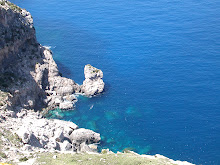cover image © CSP 2013
This collective work aims to compare media (and in particular cultural press) in Francoist Spain and Communist Romania, placing the two opposing paradigms in a common approach with the intention of identifying shared patterns and intricate connections between them, but, at the same time, without ignoring their radical differences. This comparison is performed both explicitly (through several chapters focusing on the general methodological implications of such a comparison between Francoist Spain and Communist Romania in the development of totalitarian / dictatorial propagandistic systems; and implicitly, by offering the academic frame to a series of case studies from both regimes. The contributors to this volume –Spanish, Anglo-Saxon and Romanian scholars – approach several aspects of media in relation to politics, propaganda, historical or social aspects in the two regimes, based on their academic backgrounds: history, cultural studies, media and literature. The volume intends to suggest - through its collection of general, comparative or analytic chapters, as well as through a new approach on two political and cultural phenomena otherwise studied as opposing paradigms – the need for a larger debate on the potential of the approach to these phenomena in a common framework.
Andrada Fătu-Tutoveanu, PhD, is a Postdoctoral Researcher, holding a
PhD (2009) from “Babeş-Bolyai” University, Cluj-Napoca, Romania. She is
currently conducting a research project on identity within Romanian
media, and is also a member of the international research project EXPERT,
P.J. Safarik University, Kosice, Slovakia, where she gives regular
lectures. In 2011 she was a Visiting Scholar at the University of the Balearic Islands (UIB), Spain. Her
academic work and teaching cover cultural studies, comparative literature, gender studies and cultural journalism.
Rubén
Jarazo Álvarez, PhD, is presently a Lecturer at the University of the
Balearic Islands (Spain). He has previously worked at the University of A
Coruña (Spain), the National University of Ireland Galway (Ireland),
and as Visiting Lecturer at the Dublin City University (Ireland),
University of the Arts London (United Kingdom), or at the New York
University (United States). He has been investigating in the influence
of Anglo-phone and Galician literatures as well as the economic,
cultural and identity implications of these interactions and has
recently been working on areas such as cultural industry/production,
Anglo-Irish theatre in the XVIII and XIX centuries, Celtic cultures,
William Shakespeare and censorship, translation studies and minority
languages, as well as peripheral representations in Western culture,
amongst other issues. He is editor of Cultural Studies academic journals
Garoza (2001-present day), and Oceánide (2009-present day).
Available at http://www.c-s-p.org
List of Tables viii
List of Illustrations ix
Foreword x
Acknowledgments xv
Part I: Comparing Francoism
and Communism
Chapter One 2
Francoism and
Communism: A Historical Approach
Àlex Amaya Quer
and Manuela Marin
Chapter Two 14
Comparing
Francoism and Communism: Methodological Issues
and Implications
and Implications
Florin Abraham
Chapter Three 32
War of Words:
Similarities and Differences between Francoist Spain
and Communist Romania in the Development of Totalitarian Propagandistic Systems
and Communist Romania in the Development of Totalitarian Propagandistic Systems
Àlex Amaya Quer
Part II: Francoist Cultural
Press
Chapter Four 56
Surviving
Literature: Literary Subgenres Published in the Spanish Periodical Press
(1936-1975)
Rubén Jarazo
Álvarez
Chapter Five 80
Anglophilia and
Popular Culture in the Francoist Spanish Press:
The Case of
Shakespearean Representations
Elena Domínguez
Romero
Chapter Six 96
Pro-German Press
and Literature in North-Western Spanish Cultures during the
World War I (1914-1918)
Joám Evans Pim
Chapter Seven 106
Cultural Revival
and Internationalization of Galician Press
(1900-1945)
Adrian Healy
Chapter Eight 117
The Rise of Syndicalism
in the United States (1933-1945)
as Reflected in
the Spanish Press
María Luz Arroyo
Vázquez
Part III: Communism and 1950s
Romanian Cultural Press
Chapter Nine 130
Periodicals,
Propaganda and Politics in Romanian Culture:
Media Discourse
Strategies in the 1950s Romanian Cultural Periodicals. Case Study:
Flacăra and Contemporanul
Andrada Fătu-Tutoveanu
Chapter Ten 156
Ascribing a New Political
Identity: Women during the 1950’s.
A Case Study on Săteanca Magazine
Manuela Marin
Chapter Eleven 173
Between East and
West: Rival Discourses of Identity in Romanian Historiography
(1954-1964)
Andi Mihalache
Chapter Twelve 189
Media Censorship
and the Local Periodical Gazeta Transilvaniei
(1943-1945)
(1943-1945)
Ruxandra Nazare
Chapter
Thirteen 213
Press,
Libraries and Secret Funds in Romania (1945-1989): Case Study
Daniel Nazare
Contributors 227
Index 230







No comments:
Post a Comment